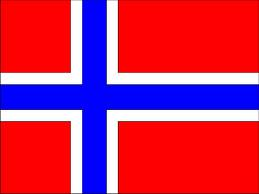Important Note: The Norwegian government has phased out the Norwegian Quota Scheme. Therefore, we regret to announce that there will be no new admissions for the Quota Scheme for the 2016/17 academic year.
Brief description: The Norwegian Government offer scholarship funds for the Quota Scholarship scheme for Bachelor’s, Master’s and PhD Students from Developing Countries at universities and university colleges in Norway 2015/2016
Accepted Subject Areas: Students usually apply for degree programmes that serve as a continuation of their studies in their home country or for courses which can be a joint part of a degree programme in their home country (joint degree or sandwich programmes). Most of the programmes offered are at Master’s or PhD level, but the Quota Scheme also offers certain Bachelor’s study programmes.
About Scholarship
The main objective of the Quota Scheme is to contribute to capacity building through education that will benefit the home country of the students when they return. The Scheme is also intended to strengthen relations between Norway and the selected countries and thus contribute to internationalization at Norwegian institutions of higher education. Most universities and university colleges in Norway participate in the Quota scheme. The institutions involved are allocated a certain number of students under the programme each year. Most of the programmes offered are at Master’s or PhD level, but the Quota Scheme also offers certain Bachelor’s study programmes
Scholarship Offered Since: Not Specified
Selection Criteria
All candidates should typically have the following basic qualifications:
- Secondary school certificates
- Minimum two years of higher education from their home country
- Some exceptions apply for certain professional educational courses at Bachelor’s level.
Eligibility
- If you wish to participate in the Norwegian Government Quota Scholarship Scheme, you must apply directly from your home country.
- You must have stayed at least one year in your home country directly prior to the planned course of study at the Norwegian university /University College.
- To be eligible to apply for the Quota Scheme, you must be able to find your home country on the list below.
Number of Scholarships
The Quota Scheme currently provides funding for a total of 1,100 students, 800 of them from developing countries in the South and 300 from countries in the Western Balkans, Eastern Europe and in Central Asia.
Value of Scholarship
Each student receives the same amount of money as a Norwegian student would do in an equivalent educational programme. 40 per cent of the amount is given as a grant and 60 per cent as a loan. However, the loan portion may be waived when the student returns to his/her home country after completing the course of study. Students who stay in Norway after finishing their studies or take up residence in another country than their home country must repay the loan.
Travelling expenses for entry into Norway may be reimbursed (fixed price).
Duration of Scholarships: Normally, the financial support given will not exceed a time span of four years for one definite study plan or a combination of two programmes.
Eligible Developing Countries
Afghanistan, Algeria, Angola, Bangladesh, Benin, Bhutan, Bolivia, Brazil, Burkina Faso, Burundi, Cambodia, Cameroon, Cape Verde, Central African Republic, China, Colombia, Comoros, Cuba, Dominican Republic, Djibouti, East Timor, Ecuador, Egypt, Equatorial Guinea, El Salvador, Eritrea, Ethiopia, Gambia, Ghana, Guatemala, Guinea, Guinea-Bissau, Guyana, Haiti, Honduras, India, Indonesia, Iraq, Iran, Ivory Coast, Jordan, Kenya, Kiribati, Laos, Lesotho, Liberia, Madagascar, Malawi, Maldives, Mali, Marshall islands, Mauritania, Micronesia, Mongolia, Morocco, Mozambique, Myanmar (Burma), Namibia, Nepal, Nicaragua, Niger, Nigeria, Niue, North Korea, Pakistan, Palestinian territories, Papua New Guinea, Paraguay, Peru, Philippines, Republic of the Congo (Congo-Brazzaville), Rwanda, São Tomé & Príncipe, Senegal, Sierra Leone, Solomon islands, Somalia, Sri Lanka, Sudan, Swaziland, Syria, South Africa, Tanzania, Tchad, Thailand, The Democratic Republic of Congo (Zaire), Togo, Tonga, Tunisia, Tuvalu, Uganda, Vanuatu, Vietnam, Western Samoa, Zambia, Zimbabwe, Yemen
Countries in the Western Balkans, Eastern Europe and Central Asia
Albania, Armenia, Azerbaijan, Bosnia and Herzegovina, Georgia, Kyrgyzstan, Kosovo, Macedonia, Moldova, Russian Federation, Tajikistan, Turkmenistan, Ukraine, Uzbekistan
To be taken at (country): Norwegian Universities in Norway.
Application Deadline: varies depending on course and institution. But typically 1 December (each year)
Offered annually? Yes
How to Apply: The institutions of higher education that are part of the Quota Scheme handle all applications from prospective students.Information about the application procedure for the Quota Scheme should be available at the participating universities’ and university colleges’ websites.
(Link has been removed, since program is no longer offered)
Sponsors: The Norwegian State Educational Loan Fund is responsible for managing the financial support provided the Norwegian Government.
Important Notes:
Most universities and university colleges in Norway participate in the Quota scheme. The institutions involved are allocated a certain number of students under the programme each year. The scheme normally includes courses at Master’s and Ph.D. level in addition to certain professional/Bachelor’s degrees. Most of the Norwegian institutions offer courses and educational programmes in English.
The deadline for applications for the Quota scheme is usually 1 December every year. Some courses and educational programmes may have different deadlines.










